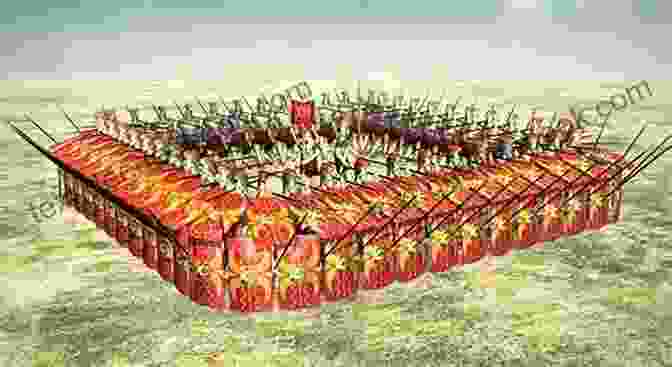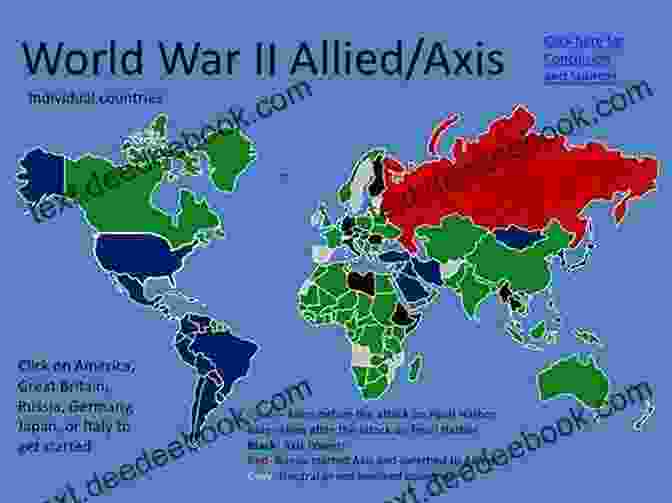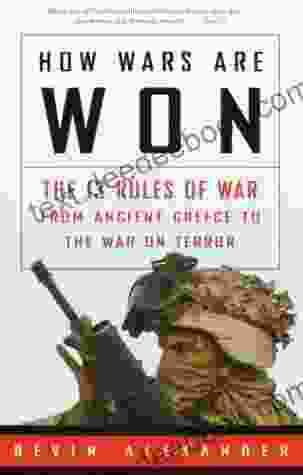The Intricate Dynamics of Warfare: A Comprehensive Guide to How Wars Are Won

: Understanding the Complexities of Armed Conflict
Warfare, a pervasive aspect of human history, is a complex and multifaceted phenomenon that has shaped societies and civilizations for millennia. Understanding how wars are won is crucial for policymakers, military strategists, and historians alike, as it provides valuable insights into the factors that determine victory or defeat. This comprehensive guide explores the intricate dynamics of warfare, examining the historical, political, social, and economic dimensions that shape its outcomes.
1. Historical Perspectives: Lessons from Pivotal Conflicts
History offers a wealth of case studies from which to glean lessons about warfare. From the ancient battles of Greece and Rome to the modern-day conflicts in Iraq and Afghanistan, wars have been fought for various reasons and with varying degrees of success. By examining historical accounts, we can identify patterns and factors that have contributed to victory or defeat, providing valuable insights for future conflicts.
4.2 out of 5
| Language | : | English |
| File size | : | 2655 KB |
| Text-to-Speech | : | Enabled |
| Screen Reader | : | Supported |
| Enhanced typesetting | : | Enabled |
| Word Wise | : | Enabled |
| Print length | : | 418 pages |

a) The Role of Superior Strategy and Tactics
Throughout history, superior strategy and tactics have played a pivotal role in determining the outcome of wars. For example, the ancient Greeks' use of the phalanx formation proved highly effective in conflicts against the Persian Empire. Similarly, in modern warfare, the development of new technologies and innovative tactics, such as airpower and amphibious assaults, have significantly altered the dynamics of battles.
b) The Importance of Logistics and Supply Chains
Logistics, the ability to provide resources and supplies to troops in the field, is essential for sustaining any military campaign. Historically, wars have been won or lost due to breakdowns in logistics, as armies that lacked food, ammunition, and medical supplies were more vulnerable to defeat. The importance of logistics remains paramount in modern warfare, where sophisticated weapons systems and complex supply chains require efficient management.
c) The Impact of Morale and Motivation
Morale, the psychological state of troops, plays a crucial role in their ability to endure the hardships of war and prevail in battle. Armies with high morale are more likely to fight with determination and resilience, while low morale can lead to desertions and breakdowns in discipline. Factors that contribute to morale include leadership, training, and a sense of purpose or ideology.
2. Political Factors: The Power of Alliances and Diplomacy
Political factors exert a significant influence on how wars are won. Alliances and coalitions can dramatically shift the balance of power, as nations pool their resources and capabilities to achieve common goals. Diplomacy, the art of negotiating and resolving conflicts through dialogue, can help avoid wars or bring them to an end on favorable terms.

a) The Formation of Alliances and Coalitions
Throughout history, alliances have played a entscheidend role in determining the outcome of wars. In World War II, for example, the Allied powers (primarily the United States, the United Kingdom, and the Soviet Union) combined their strength to defeat the Axis powers (Germany, Japan, and Italy). The formation of alliances can provide access to additional resources, troops, and strategic advantages, increasing the chances of victory.
b) The Art of Diplomacy and Negotiation
Diplomacy is a powerful tool in war and peace. Through negotiation, parties can reach agreements that resolve conflicts without resorting to violence. Examples of successful diplomacy include the Treaty of Versailles, which ended World War I, and the Helsinki Accords, which helped ease tensions during the Cold War. Diplomacy can also serve as a means of buying time, gathering intelligence, or sowing discord among adversaries.
c) The Role of International Law and Organizations
International law and organizations play an increasingly important role in shaping how wars are waged. The Geneva Conventions, for instance, establish standards for the humane treatment of prisoners of war and civilians, while the United Nations provides a forum for resolving conflicts peacefully and coordinating humanitarian efforts. These legal and organizational frameworks aim to limit the scope and severity of armed conflict and promote stability in the international system.
3. Social and Economic Factors: The Impact of Society and Resources
Social and economic factors also influence how wars are won. A society's level of education, technological development, and economic resources can all contribute to its ability to wage war effectively.

a) The Role of Technology and Innovation
Technological advancements have consistently shaped warfare throughout history. The invention of gunpowder, for example, revolutionized medieval warfare, while the development of the tank and the airplane in the 20th century had a profound impact on land and air combat. In modern warfare, cyber capabilities and artificial intelligence are emerging as new frontiers of technological innovation, potentially altering the dynamics of future conflicts.
b) The Impact of Economic Resources
Economic resources are essential for sustaining war efforts. The availability of raw materials, industrial capacity, and financial resources can determine a nation's ability to produce weapons, equip troops, and fund military operations. Wars have often been fought over access to natural resources, such as oil, minerals, and water, highlighting the close link between economic factors and warfare.
c) The Role of Education and Training
Education and training play a crucial role in developing a skilled and effective military force. An educated population can produce engineers, scientists, and military strategists who can develop and implement innovative technologies and tactics. Training programs ensure that troops are prepared for combat and capable of operating sophisticated weapons systems.
4. Psychological Factors: The Importance of Perception and Deception
Psychological factors, such as perception and deception, can significantly influence the outcome of wars. Wars are often won not only on the battlefield but also in the minds of the combatants and the civilian populations.

a) The Power of Propaganda and Public Opinion
Propaganda, the dissemination of information to influence public opinion, has been used throughout history to rally support for war efforts and demonize adversaries. Propaganda can create a sense of unity and purpose within a nation, motivate troops to fight, and undermine the morale of enemy forces. Public opinion, shaped by propaganda and other factors, can also influence political decisions and the allocation of resources during wartime.
b) The Importance of Deception and Surprise
Deception and surprise are powerful strategies in war. Surprise attacks can give one side a significant advantage, as seen in the German invasion of Poland in 1939. Deception, such as spreading false information or using decoys, can mislead opponents and create opportunities for victory. Psychological operations, including the use of propaganda and psychological warfare techniques, aim to influence the perceptions and behaviors of enemy combatants and civilian populations.
: The Multifaceted Nature of Warfare
Warfare is a multifaceted phenomenon that involves a complex interplay of historical, political, social, economic, and psychological factors. Understanding how wars are won requires a comprehensive analysis of these factors, as they shape the dynamics of conflicts and determine their outcomes. By examining historical case studies, analyzing the role of alliances and diplomacy, considering the impact of technological advancements and economic resources, and exploring the effects of psychological factors, this guide provides a foundation for understanding the intricate dynamics of warfare.
In the face of ongoing conflicts and the potential for future wars, it is imperative to have a deep understanding of the factors that contribute to victory or defeat. This knowledge can help policymakers, military strategists, and historians make informed decisions, mitigate the risks of war, and strive for peaceful resolutions whenever possible. By unraveling the complexities of warfare, we can gain valuable insights into the pursuit of peace and the preservation of human life.
4.2 out of 5
| Language | : | English |
| File size | : | 2655 KB |
| Text-to-Speech | : | Enabled |
| Screen Reader | : | Supported |
| Enhanced typesetting | : | Enabled |
| Word Wise | : | Enabled |
| Print length | : | 418 pages |
Do you want to contribute by writing guest posts on this blog?
Please contact us and send us a resume of previous articles that you have written.
 Novel
Novel Page
Page Story
Story Paperback
Paperback Newspaper
Newspaper Paragraph
Paragraph Sentence
Sentence Shelf
Shelf Preface
Preface Synopsis
Synopsis Annotation
Annotation Manuscript
Manuscript Scroll
Scroll Bestseller
Bestseller Classics
Classics Narrative
Narrative Autobiography
Autobiography Memoir
Memoir Encyclopedia
Encyclopedia Dictionary
Dictionary Narrator
Narrator Resolution
Resolution Librarian
Librarian Borrowing
Borrowing Stacks
Stacks Archives
Archives Periodicals
Periodicals Study
Study Scholarly
Scholarly Lending
Lending Reserve
Reserve Journals
Journals Reading Room
Reading Room Rare Books
Rare Books Interlibrary
Interlibrary Thesis
Thesis Storytelling
Storytelling Awards
Awards Book Club
Book Club Theory
Theory Rich Zubaty
Rich Zubaty Claude Debussy
Claude Debussy Don Taylor
Don Taylor Peter C Vermilyea
Peter C Vermilyea Stephen Shmanske
Stephen Shmanske Tomer Sharon
Tomer Sharon Donna Kauffman
Donna Kauffman Piers Brendon
Piers Brendon David L Chappell
David L Chappell Yasutaka Tsutsui
Yasutaka Tsutsui Jess Hill
Jess Hill Chris Hedges
Chris Hedges Kim Diehl
Kim Diehl Karan Mahajan
Karan Mahajan Jason P Doherty
Jason P Doherty David W Johnson
David W Johnson Rupert Matthews
Rupert Matthews Deborah Brown
Deborah Brown Steve Scalise
Steve Scalise Rosemary Gordon
Rosemary Gordon
Light bulbAdvertise smarter! Our strategic ad space ensures maximum exposure. Reserve your spot today!

 Hudson HayesDelphi Complete Works of Samuel Taylor Coleridge: The Definitive Collection...
Hudson HayesDelphi Complete Works of Samuel Taylor Coleridge: The Definitive Collection... Kelly BlairFollow ·2.8k
Kelly BlairFollow ·2.8k Neil GaimanFollow ·16.6k
Neil GaimanFollow ·16.6k Richard AdamsFollow ·9.8k
Richard AdamsFollow ·9.8k Yasushi InoueFollow ·5.3k
Yasushi InoueFollow ·5.3k Eli BlairFollow ·8k
Eli BlairFollow ·8k Douglas FosterFollow ·13.3k
Douglas FosterFollow ·13.3k Trevor BellFollow ·7.6k
Trevor BellFollow ·7.6k Ben HayesFollow ·16.2k
Ben HayesFollow ·16.2k

 Jack Powell
Jack PowellThe United Nations Renaissance: A New Era of Global...
The United Nations was founded in 1945 in...

 Banana Yoshimoto
Banana YoshimotoMastering the Art of Critical Analysis: A Comprehensive...
Ida B. Wells-Barnett, a...

 Brian West
Brian WestWhat You Need To Know About The Inner Lives Of Men:...
Understanding the...
4.2 out of 5
| Language | : | English |
| File size | : | 2655 KB |
| Text-to-Speech | : | Enabled |
| Screen Reader | : | Supported |
| Enhanced typesetting | : | Enabled |
| Word Wise | : | Enabled |
| Print length | : | 418 pages |
















